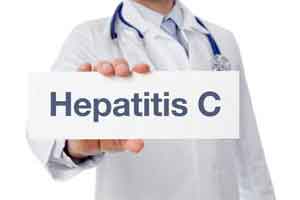- Home
- Editorial
- News
- Practice Guidelines
- Anesthesiology Guidelines
- Cancer Guidelines
- Cardiac Sciences Guidelines
- Critical Care Guidelines
- Dentistry Guidelines
- Dermatology Guidelines
- Diabetes and Endo Guidelines
- Diagnostics Guidelines
- ENT Guidelines
- Featured Practice Guidelines
- Gastroenterology Guidelines
- Geriatrics Guidelines
- Medicine Guidelines
- Nephrology Guidelines
- Neurosciences Guidelines
- Obs and Gynae Guidelines
- Ophthalmology Guidelines
- Orthopaedics Guidelines
- Paediatrics Guidelines
- Psychiatry Guidelines
- Pulmonology Guidelines
- Radiology Guidelines
- Surgery Guidelines
- Urology Guidelines
Eight specific recommendations for management of hepatitis C in pregnancy

Hepatitis C (HCV) during pregnancy is associated with serious, adverse outcomes. Infants born to women with HCV are more likely to experience fetal growth restriction and low birth weight. For women, chronic HCV is associated with progressive liver damage and, during pregnancy, can be transmitted from the mother to the fetus (called vertical transmission).
Highly effective treatments for HCV now exist, but none are currently approved for use during pregnancy. Yet, up to 8% of pregnant women worldwide are infected with HCV.
The Society for Maternal-Fetal Medicine (SMFM) today released new clinical guidance regarding HCV in pregnancy entitled, "SMFM Consult Series #43: Hepatitis C in pregnancy: screening, treatment, and management." The recommendations are currently available on the SMFM website, will be published in the November issue American Journal of Obstetrics and Gynecology, and are endorsed by the American College of Obstetricians and Gynecologists (ACOG).
The "SMFM Consult Series #43: Hepatitis C in pregnancy: screening, treatment, and management," recommends that obstetric care providers should:
- Screen women who are at increased risk for HCV at their first prenatal visit. Risk factors include the use of injected or intranasal (snorted) illegal drugs; long-term hemodialysis; women who have received a tattoo or medical procedure in an unregulated setting; being the recipient of an organ transplant or blood products; a history of incarceration; women seeking care related to other sexually transmitted infections (STIs); and chronic liver disease.If the initial screening results are negative, screening should be repeated later in pregnancy for women with persistent or new risk factors. HCV-positive pregnant women should be screened for other sexually transmitted infections and vaccinated for Hepatitis A and B during pregnancy.
- Manage HCV during pregnancy, labor, and birth to decrease the risk of transmission of vertical transmission. Recommendations include: 1.) if invasive prenatal diagnostic testing is requested, women should be counseled that data on risk is limited and amniocentesis is preferred over chorionic villus sampling; 2.) HCV alone is not an indication for cesarean birth; and 3.) providers should avoid internal fetal monitoring, prolonged rupture of membranes, and episiotomy in HCV-positive women.
- Treat HCV in the postpartum period. HCV positive women can breastfeed.
"Not enough is known about the effect of most drugs on a woman and her pregnancy, or the ways in which pregnancy may alter the uptake, metabolism and effectiveness of medications," said lead author and SMFM member, Brenna Hughes, MD, MSc. "The treatments currently available for HCV are no exception."
"More research on HCV during pregnancy is needed to further our understanding of the virus and its treatment," said ACOG Vice President of Practice Activities, Christopher M. Zahn, MD. "With further information, obstetric care providers will be able to adequately screen for HCV and counsel pregnant women who are HCV-positive."

Disclaimer: This site is primarily intended for healthcare professionals. Any content/information on this website does not replace the advice of medical and/or health professionals and should not be construed as medical/diagnostic advice/endorsement or prescription. Use of this site is subject to our terms of use, privacy policy, advertisement policy. © 2020 Minerva Medical Treatment Pvt Ltd